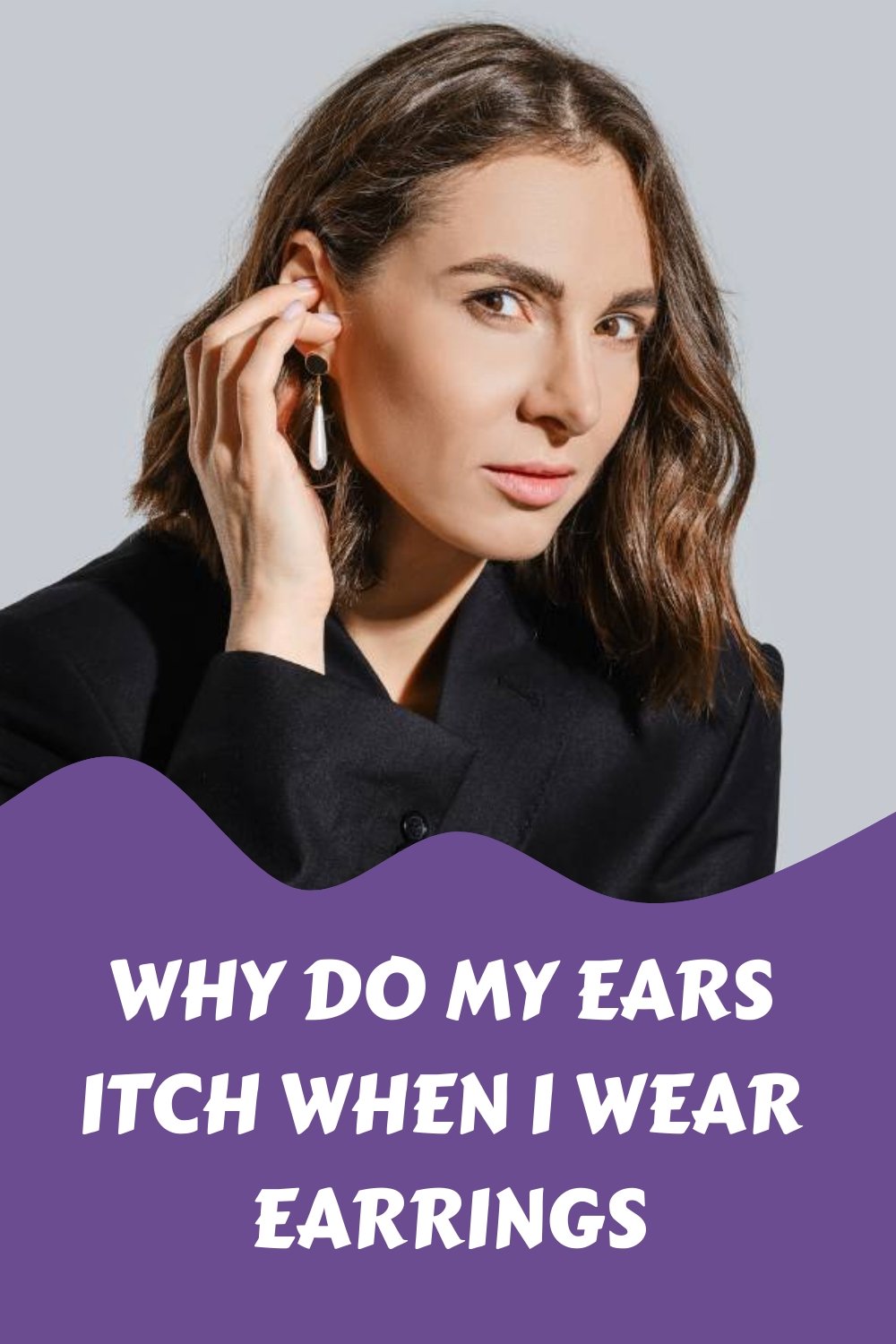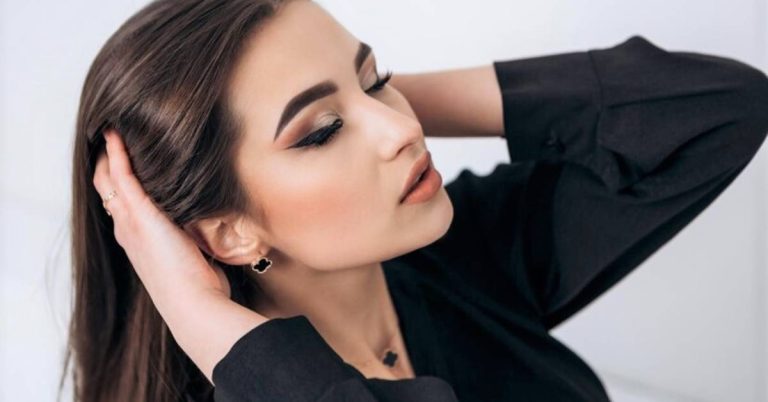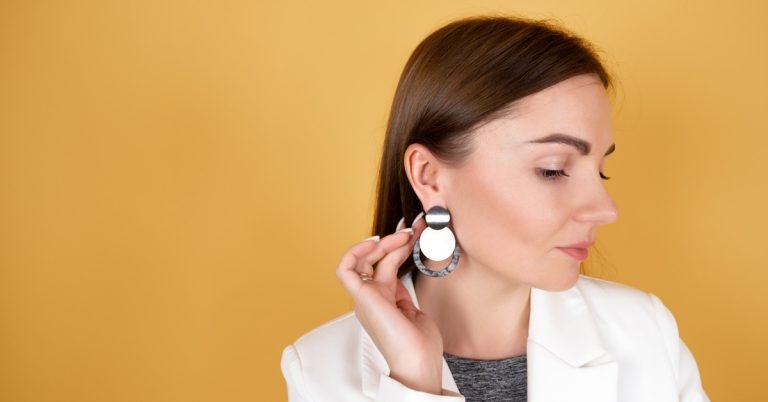No products in the cart.
Why Do My Ears Itch When I Wear Earrings
by Outfit Galore
If you’re like many people, you may have experienced an itchy feeling in your ears after wearing earrings. So you have probably wondered, why do my ears itch when I wear earrings? This is a common problem that can make wearing jewelry uncomfortable and even embarrassing if the itching doesn’t go away quickly. Also, see What Are Cuff Earrings and What To Do With Single Earrings.

In this article, we’ll explore why our ears itch when we wear earrings and what steps we can take to avoid or alleviate these symptoms. Itching around the ears is often caused by allergic reactions to certain metals used to make earrings, such as nickel and cobalt. These metals are found in many types of jewelry.
Additionally, some cosmetics contain ingredients that can cause irritation if they come into contact with sensitive skin on the earlobe. We’ll look at how we can identify which allergen is causing us discomfort so we can determine whether or not to continue wearing those particular pieces of jewelry.
Table of Contents
Allergic Reactions To Metal
Many of us love wearing jewelry, but if your ears start to itch and swell when you put on earrings, it can be a real bummer. It may feel like an unfair punishment for wanting to look cute, but the culprit is likely metal sensitivities; your body has reacted negatively to the material used in earring construction.
Fortunately, there are plenty of hypoallergenic earrings out there that won’t trigger such reactions. To be sure your next pair doesn’t cause irritation, opt for hypoallergenic metals such as titanium or surgical steel—or even better yet, avoid metal altogether and try sterling silver posts with plastic or wood beads instead. A little research beforehand can go a long way towards preventing any discomfort down the line.
-
Product on sale
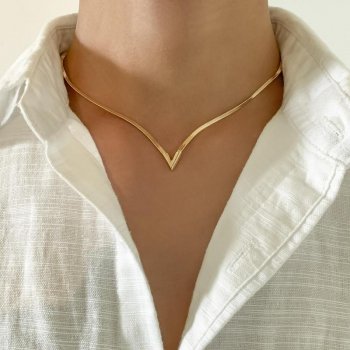 Elegant V-Shaped Flat Snake Chain NecklaceOriginal price was: $7.21.$6.49Current price is: $6.49.
Elegant V-Shaped Flat Snake Chain NecklaceOriginal price was: $7.21.$6.49Current price is: $6.49. -
Product on sale
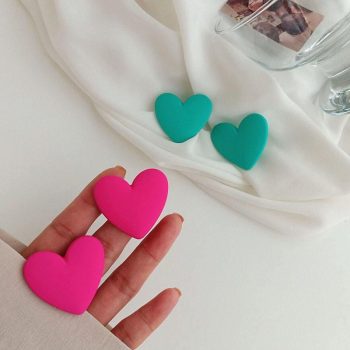 Colorful Heart-Shaped Acrylic Earrings for WomenOriginal price was: $9.07.$6.80Current price is: $6.80.
Colorful Heart-Shaped Acrylic Earrings for WomenOriginal price was: $9.07.$6.80Current price is: $6.80. -
Product on sale
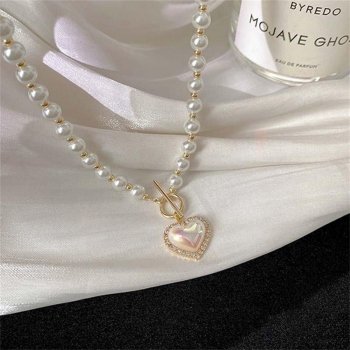 Vintage Heart Pendant Pearl NecklaceOriginal price was: $8.50.$6.80Current price is: $6.80.
Vintage Heart Pendant Pearl NecklaceOriginal price was: $8.50.$6.80Current price is: $6.80. -
Product on sale
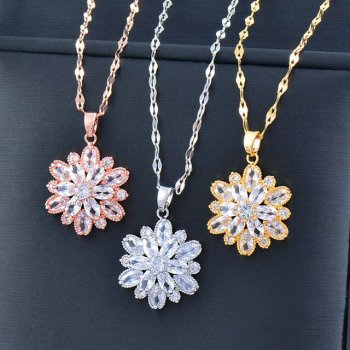 Womens Gold-Plated Crystal Flower Pendant ChokerOriginal price was: $9.07.$6.80Current price is: $6.80.
Womens Gold-Plated Crystal Flower Pendant ChokerOriginal price was: $9.07.$6.80Current price is: $6.80. -
Product on sale
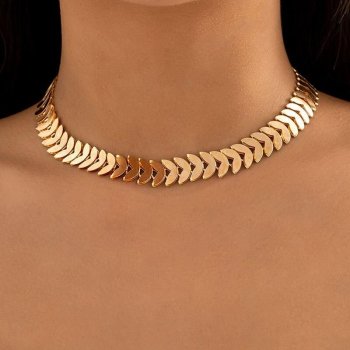 Gold Petal Choker Necklace for WomenOriginal price was: $9.07.$6.80Current price is: $6.80.
Gold Petal Choker Necklace for WomenOriginal price was: $9.07.$6.80Current price is: $6.80. -
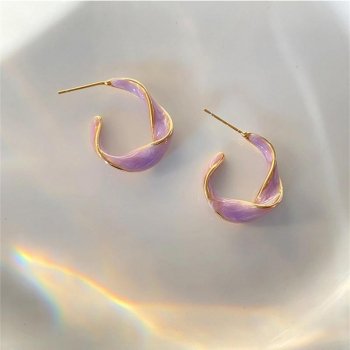 Lavender Purple Twisted Hoop Earrings$6.95
Lavender Purple Twisted Hoop Earrings$6.95
In addition to your choice of materials, cosmetics also play a role in how our skin reacts to jewelry. If you’re using lotions and oils prior to putting on earrings, these products could form a barrier between the metal and the skin which causes allergy-like symptoms upon contact due the inability of your skin to breathe properly. To ensure this isn’t happening, clean off any residue before sliding them on your lobes.
With that precaution taken care of, you’ll be free to enjoy all sorts of statement-making accessories without fear! Moving forward then let’s take a closer look at what kind of cosmetics might have been causing issues in the first place…
The Role Of Cosmetics
Skin care products are essential for maintaining healthy skin, and for protecting it from the elements.
Makeup application can help enhance your natural beauty, but it’s important to ensure that products are safe for use.
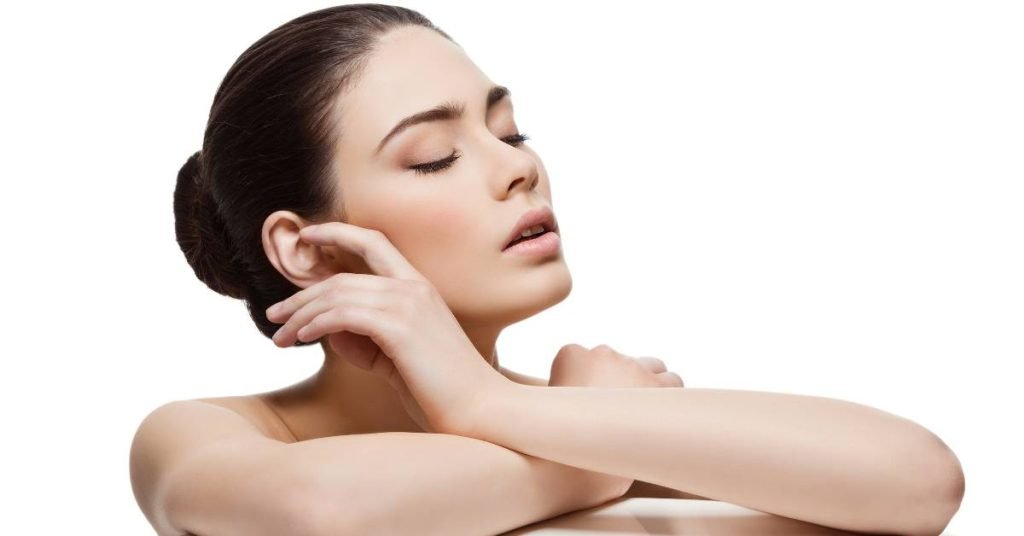
Cosmetic safety is paramount when it comes to protecting yourself from potential irritants and allergens.
Knowing what ingredients are in the products you use can help you avoid reactions like itchy ears when wearing earrings.
Everyone should be aware of the potential risks that come with wearing certain types of cosmetics, and know what to do if they experience any reactions.
With the right precautions, you can enjoy cosmetics without worrying about potential adverse effects.
Skin Care Products
When it comes to cosmetics, one of the key elements is careful selection.
As someone who loves wearing earrings, I often find my ears itching after a few hours – and that’s when skin sensitivity can be an issue.
To avoid irritation from jewelry or other makeup products, choosing the right type of product for your skin is important.
It’s worth doing research on ingredients before you buy something and always test new items in a small area to make sure they won’t cause any adverse reactions.
Taking these steps will help ensure smooth application and long-lasting results without causing discomfort.
Makeup Application
Once you’ve selected the right cosmetics for your skin, it’s time to apply them with care.
Skin care is an important part of any makeup routine and should be taken seriously.
Different cosmetic brands have different methods for application so make sure to read up on their instructions.
It’s also a good idea to start off lightly as applying too much product can lead to caking and smearing.
With patience and practice, you’ll soon master the perfect look!
Cosmetic Safety
When it comes to cosmetics, safety should be your top priority.
Skin sensitivity can occur when using products that are not hypoallergenic, so be sure to research the ingredients of any makeup you use.
You may want to consider switching to a brand which offers organic and natural alternatives as well.
Also, never share makeup with anyone else in order to avoid spreading bacteria or infections.
Finally, always check for expiry dates on all products before applying them – expired cosmetics won’t only look bad but could also potentially cause harm!
Identifying The Source Of Allergy
Itching ears due to wearing earrings is a common occurrence, and it can have several causes. Allergic reactions are some of the most likely culprits. Identifying what exactly is causing an allergic reaction is important in order to treat or avoid it.
The following list outlines possible sources of allergies related to wearing earrings:
- Fragrance sensitivity
- Contact dermatitis
- Metal allergy
Fragrances used on jewelry can cause itching if someone has sensitive skin or a fragrance allergy. It’s best to opt for hypoallergenic pieces with no added fragrances or dyes.
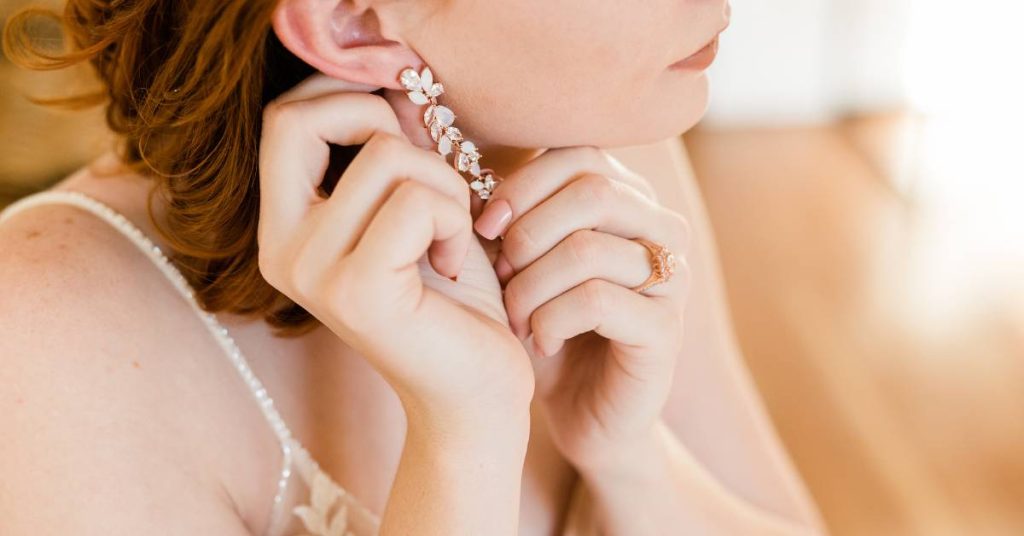
Contact dermatitis occurs when something irritates your skin directly, such as metals coming into contact with sweat glands behind the ears. A metal allergy may also be responsible – nickel is often found in cheaper jewelry and can cause rashes and other symptoms associated with contact dermatitis.
Identifying what type of allergic reaction you’re having will help guide how to prevent future occurrences and keep your ears from itching when you wear earrings. Moving forward, avoiding allergens should be done by looking for hypoallergenic materials and ensuring that any metals do not come into direct contact with your skin.
Avoiding Allergens
It was almost too coincidental—as soon as you put on those earrings, your ears started itching. It’s like your body knew what was coming and wanted to protest in the only way it could; by making your ears itch incessantly.
But don’t fret! There are ways of avoiding this irritation while wearing jewelry that can make all the difference. By avoiding irritants like nickel or cheap metals, minimizing exposure to potential allergens, and opting for hypoallergenic materials when possible, you can help prevent skin reactions from occurring. Taking these steps will also help keep your ears healthy before any more trying experiences with jewelry.
Fortunately, there are several natural remedies available if you do find yourself dealing with an itchy reaction every now and then. With a few simple ingredients and some patience, you’ll be able to get rid of that pesky itch in no time at all.
Moving forward, let’s explore various options for treating irritated ears.
Natural Remedies For Itching Ears
While it’s important to avoid allergens in order to prevent itching ears, there are also natural remedies you can try.
When shopping for earrings, safety precautions should be taken—such as avoiding cheap jewelry, opting for hypoallergenic products, and only buying from reputable companies.
The type of material used on the earring is just as important as the product choice itself.
Here are three materials that tend to cause less irritation:
- Gold-Plated: A layer of gold applied on top of another metal prevents direct contact with skin.
- Nickel-Free: Nickel allergies are among the most common causes of itchiness related to wearing jewelry; look for nickel-free pieces if this may apply to you.
- Sterling Silver: This option is more expensive but provides excellent protection against allergic reactions due to its low reactivity level.
-
Product on sale
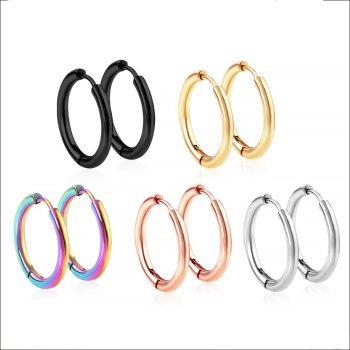 Small Hoop Earrings – Women & Men$10.00 – $15.00
Small Hoop Earrings – Women & Men$10.00 – $15.00 -
Product on sale
 Colored 925 Silver Earrings Various DesignsOriginal price was: $37.00.$15.00Current price is: $15.00.
Colored 925 Silver Earrings Various DesignsOriginal price was: $37.00.$15.00Current price is: $15.00. -
Product on sale
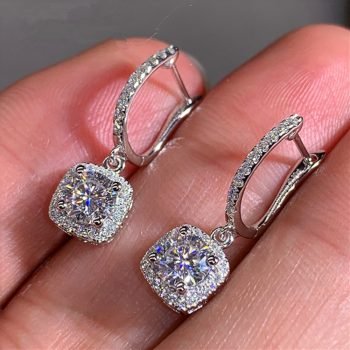 Women’s Crystal Drop EarringsOriginal price was: $27.00.$15.00Current price is: $15.00.
Women’s Crystal Drop EarringsOriginal price was: $27.00.$15.00Current price is: $15.00. -
Product on sale
 Geometric Earrings for WomenOriginal price was: $31.00.$15.00Current price is: $15.00.
Geometric Earrings for WomenOriginal price was: $31.00.$15.00Current price is: $15.00. -
Product on sale
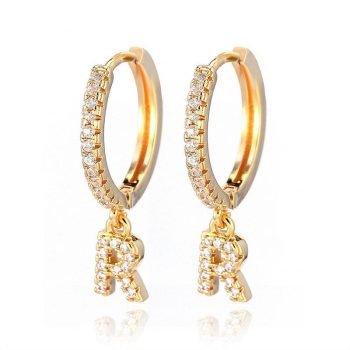 Women’s Initial Letter Hoop EarringsOriginal price was: $33.00.$15.00Current price is: $15.00.
Women’s Initial Letter Hoop EarringsOriginal price was: $33.00.$15.00Current price is: $15.00. -
Product on sale
 Top Fashion Twisted Metal EarringsOriginal price was: $15.00.$10.00Current price is: $10.00.
Top Fashion Twisted Metal EarringsOriginal price was: $15.00.$10.00Current price is: $10.00.
Practicing good hygiene and cleaning your jewelry regularly will help ensure a safe and comfortable experience when wearing earrings.
It’s best to use an all-natural solution like vinegar or baking soda diluted in warm water when performing routine maintenance on your accessories.
With these tips in mind, you should be able to minimize any unwanted effects caused by wearing earrings.
Practicing Good Hygiene And Cleaning Jewelry
Good hygiene and proper cleaning of jewelry are essential to ensure that earrings do not cause itching or discomfort. It is important to keep the area around pierced ears clean, as any accumulation of oils, dirt, sweat and bacteria can lead to infection. Here is a table outlining steps for keeping your piercings clean:
| Step | Recommendations |
|---|---|
| 1 | Cleanse piercing with mild soap and water twice a day. Pat dry with a clean towel after each wash. |
| 2 | Avoid touching earring posts with unwashed hands; they should be washed before handling them. |
| 3 | Remove ear plugs or other pieces of jewelry on a regular basis when showering or sleeping. Clean them separately from other items in warm soapy water and air dry afterward. Avoid wearing different styles of earrings too often; change out your styling every few days instead. Also avoid sleeping in dangling earrings since these may snag more easily than studs during sleep. |
| 4 | Be mindful of swimming environments where chemicals like chlorine may irritate skin near the piercing site, leading to further irritation caused by itchy ears due to metal allergies from nickel found in some jewelry pieces such as cheap earrings plated with silver or gold colorant coatings. Wear silicone-based protective covers over the post ends if engaging in activities involving water exposure for extended periods of time. |
It’s also critical to choose hypoallergenic metals for those who have sensitive skin and buy high quality materials if planning on getting an ear piercing done professionally at a salon studio or parlor – this will help reduce allergic reactions when you wear your new accessory piece(s).
Taking good care of your body through healthy eating habits and avoiding smoking cigarettes are additional recommendations that could help prevent adverse effects associated with wearing certain types of jewelry, including itchiness around the ears.
Frequently Asked Questions on Why Do My Ears Itch When I Wear Earrings
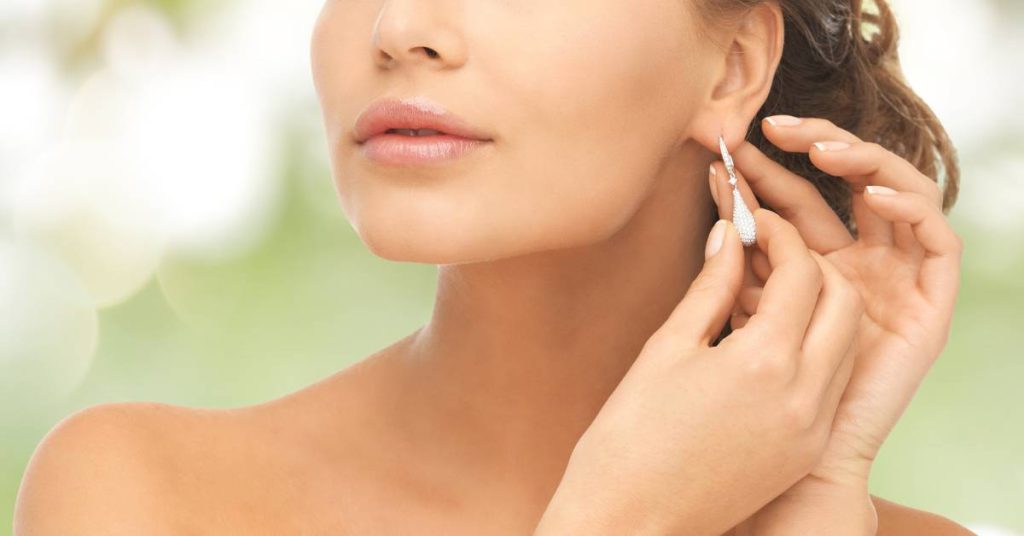
Are There Any Risks Associated With Wearing Earrings?
Interestingly, wearing earrings can come with risks. While many people wear them without any issues, they may cause allergic reactions or infections in some cases.
Hypoallergenic materials should be used to help reduce the risk of an allergic reaction. In addition, proper cleaning and care is necessary to avoid infections when wearing earrings.
Ultimately, it’s important to keep these potential risks in mind when deciding whether or not to wear earrings.
How Can I Tell If I Am Allergic To The Metal In My Earrings?
If you think you may be allergic to the metal in your earrings, there are a few ways to test it.
The most reliable way is to do patch testing with the specific materials used in your earrings.
This will help identify any potential allergens that could be causing irritation.
Alternatively, opting for hypoallergenic options such as titanium or gold-plated jewelry can provide relief from allergies without having to do additional tests.
What Are The Best Practices For Cleaning And Storing Earrings?
Itching to keep your earrings clean and sparkling? Proper hygiene and jewelry care are key when it comes to making sure your bling stays bright.
To get the most life out of your accessories, follow best practices for cleaning and storing them. Clean with an ammonia-free solution or mild soap and water, then dry thoroughly before putting them away – otherwise you’ll be left in a lurch!
Keep pieces separate so they don’t scratch each other and store in airtight containers or velvet bags to prevent tarnishing. With these tips, you should have smooth sailing ahead!
How Can I Prevent My Ears From Itching When Wearing Earrings?
Wearing earrings can be a stylish way to accessorize, but itchy ears are an irritating side effect.
To prevent the itching while wearing earrings, try using hypoallergenic or nickel-free metals. Hypoallergenic materials won’t cause allergic reactions and nickel-free metals won’t irritate your skin.
Additionally, cleaning and storing your earrings properly will help ensure that they last longer and don’t cause any irritation when worn.
Are There Any Special Types Of Earrings That Cause Less Irritation?
Feeling the relentless itching of your ears when wearing earrings can be enough to drive you insane.
But luckily, there are special types of earrings designed to help reduce irritation and keep your ears comfy.
Hypoallergenic earrings and non-metallic ones are great options for those who experience discomfort due to their sensitive skin or metal allergies – allowing them to continue making a statement without having to sacrifice comfort!
Conclusion
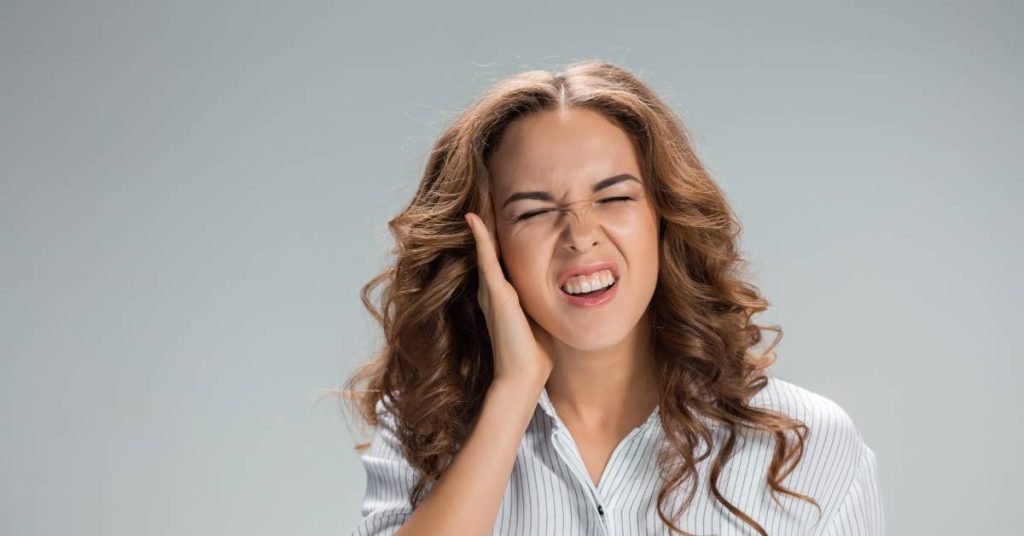
Wearing earrings can be a beautiful way to accessorize, but it is important to take the necessary precautions in order to prevent any itching or discomfort.
It may seem daunting at first, but by being mindful of allergies and properly cleaning your earrings regularly, you will be able to enjoy them without worry.
Think of taking care of your earrings as tending to a garden: with regular watering and weeding out potential irritants, they’ll flourish and bring joy for years to come.
What Are Cuff Earrings
Jul 9, 2023
Are Screw Back Earrings Better
Jul 9, 2023

